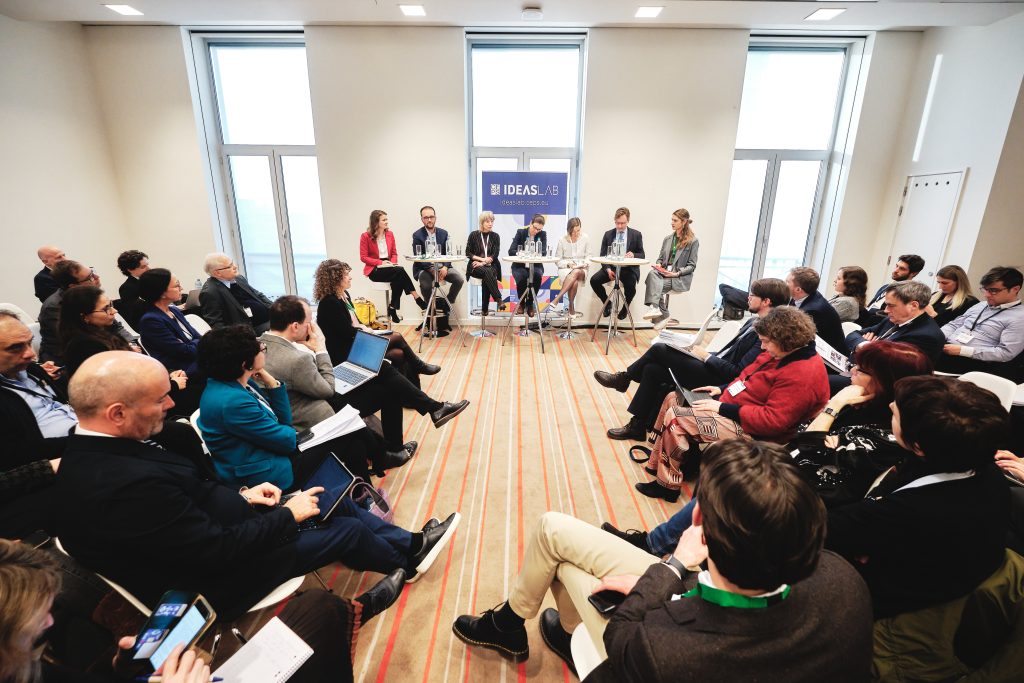On March 4th and 5th, we had the pleasure of attending the IdeasLab 2024 organized by CEPS – Center for European Policy Studies at the Square in Brussels. The IdeasLab event provides a platform for engaging discussions and innovative ideas on pressing societal issues. Our project, TransEuroWorkS, had the opportunity to support a session titled “Just Transition, Just Skills? Rethinking the Green Labour Market Transition,” moderated by our partners from CEPS, Patricia Urban and Leonie Westhoff. During this session, we engaged with international experts, including Katharina Bohnenberger (Coordinator at the German Institute for Interdisciplinary Social Policy Research, University of Bremen), Andrea Garnero (Directorate for Employment, Labour and Social Affairs of the OECD), Frank Siebern-Thomas (Head of Unit Fair Green and Digital Transitions, Research – European Commission), Barbara Gerstenberger (Head of Working Life Unit – Eurofound), and Ann Coenen (Labour Market Expert, SPF Employment Labour and Social Dialogueei ), who shared insights on defining the green transition and its impact on the world of work.
The discussion highlighted the complexities and challenges inherent in transitioning towards a greener labour market. Key dimensions of this transition were explored, underscoring the uneven impact across sectors, regions, and socioeconomic groups. Moving away from fossil fuels and towards renewable energy, for example, will induce major changes on the labour market. Geographical disparities further exacerbate these shifts, with some areas experiencing disproportionate job losses.
A major concern raised was the socioeconomic and distributional implications of this transition. It is anticipated that individuals with lower skills and incomes may be particularly vulnerable, and effects may also be unequal across social dimensions, such as gender. Additionally, the evolving nature of work poses challenges, with implications for job quality and skill requirements.
Policy responses were discussed, emphasizing the need for a holistic approach that balances reactive measures with more enabling policies. Proactive solutions, such as early reskilling initiatives, were highlighted as essential for facilitating a just transition.
Stakeholder engagement emerged as a crucial factor in navigating the transition successfully. Involving social partners, communities, SMEs, and individual workers in the transition process is essential for effective implementation. However, challenges remain, including data limitations and political obstacles.
In conclusion, the transition to a greener labour market requires comprehensive strategies that prioritise equity, job quality, and proactive policy responses. By addressing the multidimensional nature of the transition, societies can better manage the challenges and opportunities presented by the shift towards sustainability.

